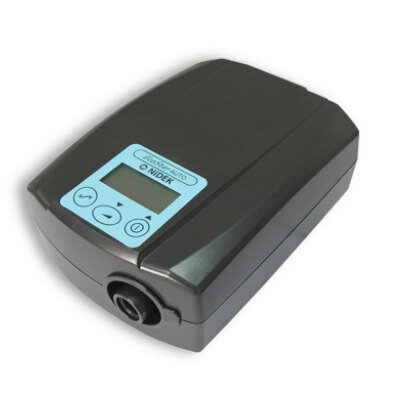EHR–Based Nudge Intervention for Surgeons to Reduce Breast Cancer Overtreatment
|
By HospiMedica International staff writers Posted on 23 Jul 2024 |

Sentinel lymph node biopsy (SLNB) is a critical surgical technique used to assess if breast cancer has spread to the underarm lymph nodes, although it's not necessary for all patients. Undergoing SLNB exposes patients to the risk of developing lymphedema, a permanent but treatable swelling in the arm or breast that can significantly affect their quality of life. For patients over 70 with early-stage estrogen-receptor positive breast cancer, routine SLNB is often discouraged due to the low risk of metastasis and favorable tumor characteristics. Despite this, many women in this demographic still receive this procedure even though it does not significantly guide treatment, improve survival, or come without potential side effects. To address this, researchers have created a new prompt, or ‘nudge,’ within the electronic health record (EHR) system to alert surgeons about older patients with early-stage breast cancer who could be at risk for unnecessary lymph node surgery.
Developed by researchers at the University of Pittsburgh Medical Center (UPMC, Pittsburgh, PA, USA), the "HER nudge" reminds surgeons to reassess the need for SLNB in older patients based on age and tumor biology. In a paper published in JAMA Surgery, the team observed a significant decline in the SLNB rate among targeted patients following the introduction of this nudge, indicating its capability to potentially reduce overtreatment. In a non-randomized clinical trial involving seven surgeons across eight surgical oncology clinics, SLNB was performed on 46.9% of eligible patients before the nudge and only 23.8% during the 12-month period after its implementation—a 49.3% reduction. This decline continued, with a further drop to 15.6% observed over an additional six months.
Surgeons participating in the trial rated the nudge as highly acceptable, appropriate, and feasible, appreciating its seamless integration into their existing workflow without the need for extra clicks or documentation. Additionally, the researchers used artificial intelligence to review patient records for mentions of lymphedema symptoms, finding that the rate of symptoms indicating a need for lymphedema evaluation fell from 6.2% to 3.6% post-nudge implementation.
“Our findings suggest that fewer lymph node surgeries resulting from the nudge will help reduce rates of lymphedema, but we need longer follow-up to be certain because this condition can take several years to appear,” said first author Neil Carleton, Ph.D., a student in Pitt’s Medical Scientist Training Program.
Related Links:
UPMC
Latest Critical Care News
- Novel Cannula Delivery System Enables Targeted Delivery of Imaging Agents and Drugs
- Ingestible Smart Capsule for Chemical Sensing in the Gut Moves Closer to Market
- Novel Intrabronchial Method Delivers Cell Therapies in Critically Ill Patients on External Lung Support
- Generative AI Technology Detects Heart Disease Earlier Than Conventional Methods
- Wearable Technology Predicts Cardiovascular Risk by Continuously Monitoring Heart Rate Recovery
- Wearable Health Monitoring Device Measures Gases Emitted from and Absorbed by Skin
- Groundbreaking Technology Rapidly Detects Airborne Influenza Viruses
- Handheld Device Could Transform Heart Disease Screening
- Flexible Semi-Autonomous Robot Could Deliver Medicine Inside Body

- Neurorestorative Treatment Strategies Hold Promise for Most Severe Forms of Epilepsy
- Gene Discovery Could Help Grow New Heart Arteries
- Study Discovers Invisible Transmission of Common Hospital-Associated Infection
- Non-Invasive Neuro-Ophthalmology Techniques Could Detect Brain Tumors Earlier
- Mass Manufactured Nanoparticles to Deliver Cancer Drugs Directly to Tumors
- World’s Smallest Pacemaker Fits Inside Syringe Tip

- AI-Powered, Internet-Connected Medical Devices to Revolutionize Healthcare, Finds Study
Channels
Critical Care
view channel
Ingestible Smart Capsule for Chemical Sensing in the Gut Moves Closer to Market
Intestinal gases are associated with several health conditions, including colon cancer, irritable bowel syndrome, and inflammatory bowel disease, and they have the potential to serve as crucial biomarkers... Read moreNovel Cannula Delivery System Enables Targeted Delivery of Imaging Agents and Drugs
Multiphoton microscopy has become an invaluable tool in neuroscience, allowing researchers to observe brain activity in real time with high-resolution imaging. A crucial aspect of many multiphoton microscopy... Read more
Novel Intrabronchial Method Delivers Cell Therapies in Critically Ill Patients on External Lung Support
Until now, administering cell therapies to patients on extracorporeal membrane oxygenation (ECMO)—a life-support system typically used for severe lung failure—has been nearly impossible.... Read morePatient Care
view channel
Portable Biosensor Platform to Reduce Hospital-Acquired Infections
Approximately 4 million patients in the European Union acquire healthcare-associated infections (HAIs) or nosocomial infections each year, with around 37,000 deaths directly resulting from these infections,... Read moreFirst-Of-Its-Kind Portable Germicidal Light Technology Disinfects High-Touch Clinical Surfaces in Seconds
Reducing healthcare-acquired infections (HAIs) remains a pressing issue within global healthcare systems. In the United States alone, 1.7 million patients contract HAIs annually, leading to approximately... Read more
Surgical Capacity Optimization Solution Helps Hospitals Boost OR Utilization
An innovative solution has the capability to transform surgical capacity utilization by targeting the root cause of surgical block time inefficiencies. Fujitsu Limited’s (Tokyo, Japan) Surgical Capacity... Read more
Game-Changing Innovation in Surgical Instrument Sterilization Significantly Improves OR Throughput
A groundbreaking innovation enables hospitals to significantly improve instrument processing time and throughput in operating rooms (ORs) and sterile processing departments. Turbett Surgical, Inc.... Read moreHealth IT
view channel
Printable Molecule-Selective Nanoparticles Enable Mass Production of Wearable Biosensors
The future of medicine is likely to focus on the personalization of healthcare—understanding exactly what an individual requires and delivering the appropriate combination of nutrients, metabolites, and... Read more
Smartwatches Could Detect Congestive Heart Failure
Diagnosing congestive heart failure (CHF) typically requires expensive and time-consuming imaging techniques like echocardiography, also known as cardiac ultrasound. Previously, detecting CHF by analyzing... Read moreBusiness
view channel
Expanded Collaboration to Transform OR Technology Through AI and Automation
The expansion of an existing collaboration between three leading companies aims to develop artificial intelligence (AI)-driven solutions for smart operating rooms with sophisticated monitoring and automation.... Read more
















